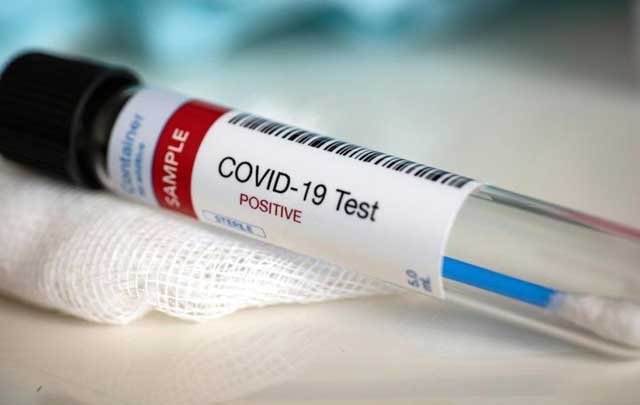
The viral flu pandemic offers government great opportunity to improve service delivery in education sector
| COMMENT | GERALD PADDE AUKU | The world is faced with the looming negative impact of the COVID-19 (Coronavirus) causing deaths, illnesses and economic despair and a badge to global poverty currently estimated at between 40-60 million people into extreme poverty (World Bank).
It is estimated that the COVID-19 pandemic is most likely to cause the first increase in global poverty since 1998, when the Asian Financial Crisis hit. With the new forecasts, global poverty—the share of the world’s population living on less than $1.90 per day (Approx. Shs200 per month) is projected to increase from 8.2% in 2019 to 8.6% in 2020, or from 632 million people to 665 million people.
Compare this with the projected decline from 8.1% to 7.8% over the same time period using the previous World Economic Outlook forecasts. The slight change from 8.2% to 8.1% for 2019 happened because the revised growth forecasts also changed for non-COVID reasons for some countries. Taking this into account, this means that COVID-19 is driving a change in the World Bank’s 2020 estimate of the global poverty rate of 0.7 percentage points — (8.6%-8.2%)-(7.8%-8.1%).
The World Bank figures so far suggest that Sub-Saharan Africa, Uganda inclusive, so far has been hit relatively less by the virus from a health perspective. Further World Bank projection suggests that Africa will be the region hit hardest in terms of increased extreme poverty. A total of 23 million of the people pushed into poverty are projected to be in Sub-Saharan Africa and 16 million in South Asia. However, in my opinion this global challenge presents an opportunity for Africa to forefend the above. Again, it will depend on the ability of the systems to develop and implement measures aimed at addressing the devastating effects on the economies.
Back to the point, Uganda has been applauded worldwide for its bold decision to lockdown that saw people staying home and key entities closing; including schools. This was enforced with stringent guidelines known as Standard Operation Procedures (SOPs). To date despite its impact to underprivileged people who survive from hand to mouth, it has yielded results in terms of containing the virus.
Applause to President Yoweri Museveni’ decisive measures. Similarly Ministries Departments and Agencies (MDAs) operationalised new SOPs and scaled it to local governments. This exhibited commitments and ownership and in a way has for the first time enhanced coordination by MDAs as they are working together through the COVID-19 National Joint Taskforce.
This has proved not only good at averting the virus but has also been significant in optimising the utilisation of scarce resources; something that has been a nightmare in the past. Wow, I imagine at one point the many anti-corruption entities in Uganda could coordinate like the COVID 19 taskforce has done. They would do wonders.
Nonetheless, the Ministry of Education and Sports (MoES) for example, is one of the entities that are most affected. Education is a pillar for any nation as it contributes substantially in boosting economic growth and increases the GDP of a country, reduces infant mortality rate, increases human life expectancy (Kudroli Foundation, 2019).
Developed economies like USA, Germany, China, and Denmark among others are as a result of huge investment in education. As per Uganda’ financial year 2019/2020 figures, the education budget was Shs3.397 trillion. It is currently expected to reduce in FY 2020/2021 to Shs3.286 trillion, a decline of Shs111.17 billion. This is not good news at all as it poses a strain in the provision of quality education. It could worsen with the COVID-19 where the MoES might have to reach out to approximately 15 million Ugandans (pupils/students) at home to deliver learning materials.
The initiative by the ministry, among others, of delivering materials to pupils/students, is brilliant and should be embraced. However, the MoES has to rethink the methods of using RDCs, Sub-county Chiefs, Parish Chiefs, Local Council one and finally to learners.
It would rather use the opportunity to reactivate its structures i.e. District Edocation Officers (DEOs), Inspector of schools, Head teachers, school management committees, teachers, perhaps LC1s, to learners. With clear guidelines, this strategy would be efficient and more accountable as opposed to using RDCs and chiefs who are already pre-occupied with other duties including COVID activities.
Government should, therefore, reflect on the challenges encountered in this period to increase budgetary allocations for proper management of the ministry for improved quality for sustainable development, make the best use of the existing structures for proper accountability as opposed to use of RDCs who are already pre-occupied with COVID-19 and security related activities.
The government should also enhance access to electricity and internet connectivity to rural areas to facility access to online learning opportunities, enhance coordination among MDAs, develop a system that is known to students to facilitate online learning and finally enable access to affordable internet.
****
Gerald Padde Auku works with Transparency International Uganda
CLICK TO READ ONLINE MAGAZINE HERE
 The Independent Uganda: You get the Truth we Pay the Price
The Independent Uganda: You get the Truth we Pay the Price



